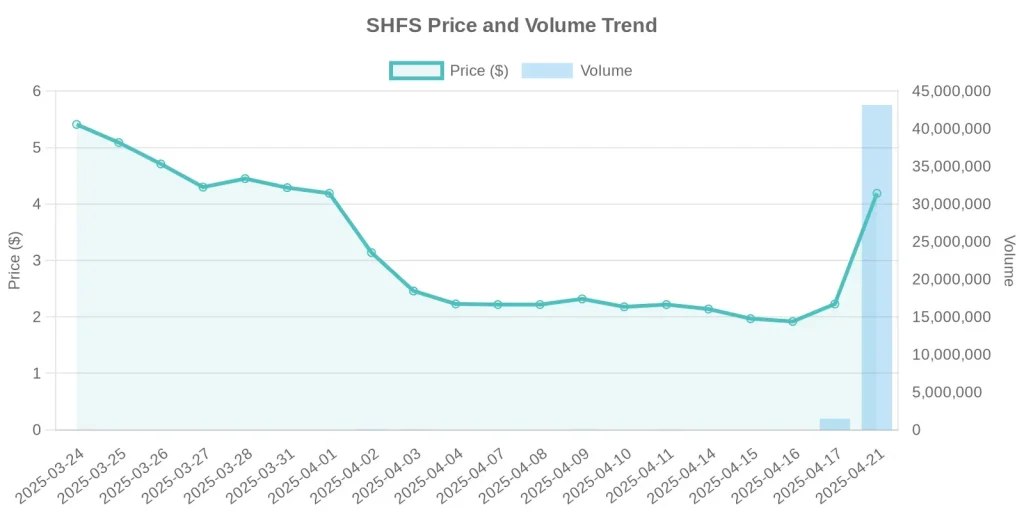The recent stock market surge has captivated investors and analysts alike, showcasing the ever-changing landscape of the financial markets. While the apparent rise in values appears to stem from impulsive comments by President Trump regarding trade policies, it is also reflective of broader phenomena influencing Wall Street volatility. As investor sentiment sways with each piece of financial market news, particularly concerning Trump tariffs impact on the U.S. economy fluctuations, the days of wild market swings have become the new norm. This dynamic demonstrates how essential it is for stakeholders to stay vigilant amid such fluctuating conditions. Ultimately, the latest surge underscores the complexities of today’s market, where optimism and uncertainty can coexist within a matter of hours.
A remarkable increase in stock values recently drew significant attention, reflecting the shifting trends in trading and investment strategies. The unpredictable nature of Wall Street is evident, as fluctuations in the financial market often arise from unexpected statements and policy hints. Such developments highlight how investor enthusiasm is shaped by external factors, particularly in response to potential changes in tariffs and trade agreements. The current climate surrounding the U.S. economy showcases the delicate balance between confidence and trepidation amongst market participants. As traders navigate these waters, they must remain alert to the potential repercussions of geopolitical and economic influences that ripple through the financial landscape.
Understanding the Stock Market Surge
This week, a stock market surge was once again attributed to the unpredictable nature of political statements rather than substantial economic indicators. President Trump’s remarks about tariffs and trade issues created a wave of optimism among investors, as many interpreted his words as a signal of potential policy changes. The volatility of Wall Street illustrates how investor sentiment can shift dramatically based on the latest headlines. This phenomenon is of significant interest in financial market news, where the influence of public figures on market trends is constantly scrutinized.
The surge witnessed on Wednesday saw the S&P 500 index climb as high as 3 percent, highlighting the mood among traders that was undoubtedly buoyed by positive rhetoric from the White House. However, the optimism proved fragile, as Treasury Secretary Scott Bessent quickly dampened expectations by clarifying that there would be no immediate changes to tariffs on Chinese imports. This retreat reflects the broader context of U.S. economy fluctuations that can turn unexpectedly with new information, cementing the importance of monitoring both market indicators and political statements.
The Impact of Wall Street Volatility
Recent movements on Wall Street have epitomized the volatility that investors are facing in today’s market. A sharp sell-off on Monday was quickly followed by two strong days of recovery, demonstrating how quickly investor confidence can change. This volatility is primarily driven not only by intrinsic market factors but also by the erratic nature of political developments. The swift changes in sentiment emphasize the link between Wall Street volatility and the capacity of investors to quickly adapt to or capitalize on perceived opportunities.
Analysts note that such erratic movements have been a hallmark of recent trading sessions, revealing the heightened sensitivity of markets to external news. The fluctuating nature of stock prices often reflects deeper concerns about policy stability and economic direction, driven largely by statements from influential figures. For instance, when reports of potential tariff revelations surfaced, stocks responded optimistically, only to retract as the reality set in. This illustrates the delicate balance the market maintains in response to news, underscoring the need for investors to stay informed on financial market news.
Analyzing Investor Sentiment Amidst Uncertainty
Investor sentiment in current markets can be likened to the tides—constantly shifting in response to political currents. This past week’s activities on Wall Street have highlighted how rapidly the mood can shift from pessimism to optimism based on the latest comments from President Trump and other influential officials. While financial markets often rely on objective data, the psychological aspects are equally crucial; traders are often motivated by the fear of missing out on profitable opportunities, particularly in a rally.
The fluctuating investor sentiment reflects broader anxiety regarding the stability of economic policies. When the President announced intentions that seemed to favor a more independent Federal Reserve, it provided a temporary boost to investor confidence. However, as mixed messages surfaced shortly afterward, apprehensions resurfaced. This dynamic emphasizes the importance of analyzing investor sentiment not only in terms of immediate market reactions but also in relation to long-term economic indicators that can affect the U.S. economy.
Effects of Trump Tariffs on the Market
The impact of Trump tariffs on the stock market has been significant and multifaceted. Initially, the announcement of tariffs triggered a wave of uncertainty among investors, as they worried about potential trade wars and their effect on the U.S. economy. However, as the President continued to make grand statements regarding trade policies, a stock market surge emerged as investors attempted to interpret these comments in a more favorable light. The unpredictability surrounding tariff implementations has become a key factor in market fluctuations.
For instance, the recent cancellations of some tariffs have led to a noticeable rally in the stock market, highlighting how quickly sentiment can shift based on policy changes. Investors have learned to adjust their strategies in anticipation of new information regarding tariffs and their implications for various sectors. As the market navigates the complex landscape of trade negotiations and tariff announcements, it’s essential for investors to stay attuned to the broader implications for economic stability and growth.
Navigating Financial Market News Effectively
In today’s fast-paced financial landscape, keeping updated with financial market news is vital for investors hoping to make informed decisions. The sharp fluctuations seen recently illustrate the market’s sensitivity to news headlines, which can result in immediate price changes. Real-time reporting on tariffs, trade talks, and economic forecasts can provide critical insights that influence trading strategies. For those looking to better navigate the stock market, understanding the nuances behind the news can empower more strategic choices.
Additionally, synthesizing information from trusted financial news sources allows investors to build a more comprehensive view of market conditions. Subscription to financial analytics and news services can enhance decision-making processes, particularly in volatile periods like the current climate. However, investors must also remain wary of sensationalism in reporting, which can evoke emotional responses and lead to irrational investment decisions. Striking a balance between timely news and objective analysis is crucial in these times of uncertainty.
The Role of the Federal Reserve in Market Stability
The Federal Reserve plays a crucial role in maintaining market stability and influencing investor confidence. In light of President Trump’s comments regarding Federal Chair Jerome Powell, the markets responded dynamically, demonstrating how closely intertwined political leadership and economic governance are in shaping perceptions among investors. As Trump hinted at potential changes in leadership at the Fed, the initial shock of such speculation contributed to market fluctuations, underscoring how the Fed’s independence is a cornerstone for the stability of the U.S. economy.
Understanding the Federal Reserve’s role is particularly important for investors seeking to navigate the current environment of uncertainty. Market fluctuations often correspond with Fed announcements and economic indicators, which highlights the need for ongoing analysis of their policies. When there are hints of changes within the Fed, it can lead to a ripple effect across the market, impacting everything from stock prices to investor sentiment in profound ways.
The Future of U.S. Economic Fluctuations
Looking ahead, the future of U.S. economic fluctuations is likely to remain unpredictable, particularly as political discourse continues to shape fiscal policies. Investors are urged to prepare for a landscape where shifts in the White House’s stance on tariffs and trade can create immediate consequences in the financial markets. This volatility is not just a short-term phenomenon; it reflects broader structural changes within the global economy influenced by U.S. policy.
Additionally, as market players analyze the potential long-term implications of the current political climate, the demand for strategic investment approaches will grow. Understanding the interplay between economic fundamentals and geopolitical factors will be paramount for investors looking to safeguard their portfolios amidst ongoing fluctuations. Continuous learning and adaptation will be essential as the landscape evolves, particularly with fluctuating investor sentiment and policy changes.
Mitigating Risks in Stock Investments
Mitigating risks in stock investments is crucial for safeguarding portfolios in times of market volatility. Given the unpredictable nature of the factors affecting Wall Street, including tariffs and political sentiments, investors should consider diversifying their holdings to spread risk. This strategically enhances the likelihood of weathering market fluctuations, especially in a climate where news can prompt significant price shifts.
Moreover, employing risk management strategies such as stop-loss orders and options can provide additional layers of protection against potential downturns. Understanding the mechanics of market movements is essential for making informed decisions, and remaining vigilant in monitoring financial reports and news can further aid in navigating through tumultuous times. By understanding the risks and preparing strategies in advance, investors can better position themselves for long-term success in the stock market.
Making Informed Investment Decisions
In a world marked by uncertainty in financial markets, making informed investment decisions is imperative for long-term success. Investors must analyze all available data, including the latest financial market news and economic indicators, to assess the viability of proposed investments. Understanding the context behind stock price changes, such as reactions to presidential statements, can empower investors to react appropriately to market movements.
Empowered by knowledge and research, investors become better equipped to assess risks and opportunities presented by market fluctuations. Establishing a disciplined approach to investing, which includes regularly reviewing asset allocations and staying informed on macroeconomic trends, is vital. By leveraging comprehensive data and maintaining a proactive mindset, investors can enhance their ability to navigate through times of volatility with confidence.
Frequently Asked Questions
What factors are driving the recent stock market surge?
The recent stock market surge has been largely driven by spontaneous remarks from President Trump and other officials concerning tariffs and trade. Investors are highly responsive to headlines regarding potential policy changes, which contributes to volatility on Wall Street.
How do Trump tariffs impact the current stock market surge?
Trump tariffs significantly impact the stock market surge by creating speculation about trade relations and potential changes to tariff policies. Recent comments from President Trump suggesting a lack of intention to dismiss key economic figures have also fueled investor enthusiasm, pushing stock prices higher.
What role does investor sentiment play in stock market surges?
Investor sentiment plays a crucial role in stock market surges, especially during periods of Wall Street volatility. Positive remarks or assurances from government officials can lead to increased optimism, resulting in significant stock gains despite underlying economic uncertainties.
How do fluctuations in the U.S. economy affect stock market performance?
Fluctuations in the U.S. economy can lead to erratic stock market performance, such as the recent surge which followed a sharp sell-off. Events influencing economic stability—including Trump’s tariff policies or changes in Federal Reserve leadership—can sharply affect investor perceptions and market movements.
Why is Wall Street experiencing increased volatility during this stock market surge?
Wall Street is experiencing increased volatility during this stock market surge due to influential political statements and rapidly changing economic indicators. As investors react to news regarding tariffs and trade policies, the market has seen significant ups and downs, reflecting a sensitive investor sentiment driven by current financial market news.
| Date | Key Events | Market Impact |
|---|---|---|
| April 11 | Trump comments on Mexico’s debt potentially increasing tariffs. | Market uncertainty due to tariff threats. |
| April 10 | Further threats on tariffs against Mexico over water rights dispute. | Increased market volatility. |
| March 31 | No exemptions for upcoming tariffs announced. | Market adjustments in anticipation of tariffs. |
| March 29 | Trump’s indifference to rising car prices due to tariffs. | Investor concern over potential economic impacts. |
| March 26 | Announcement of 25% tariffs on imported cars and parts. | Market reactions influenced by trade policy. |
| April 15 | Trump maintains Fed Chair Powell position amidst criticism. | Temporary market boost despite prior concerns. |
Summary
The stock market surge observed this past Wednesday highlights how unpredictably investor sentiment can sway in response to political commentary rather than solid economic data. Heightened reactions to remarks from President Trump and other officials reflect an environment of volatility, as traders adjust their expectations based on the latest headlines regarding tariffs and economic policies. This demonstrates that, although market surges can appear significant, they are often built on fragile foundations of speculation and uncertainty.



